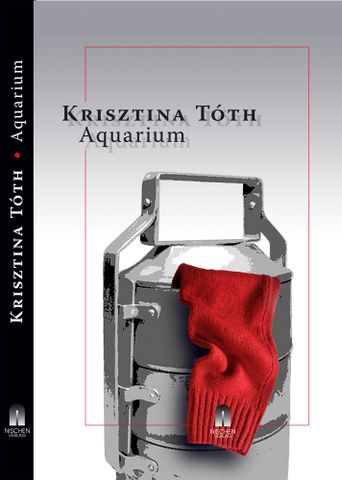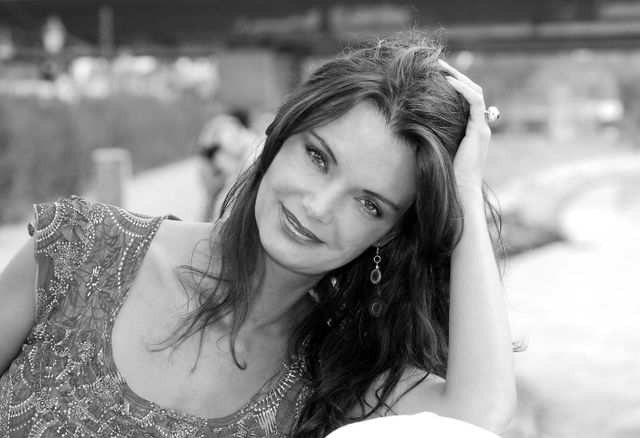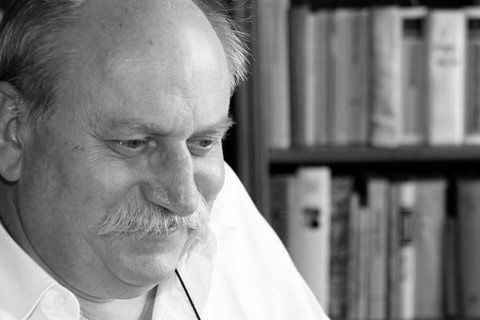Aquarium
Krisztina Tóth | György Buda
Krisztina Tóth: Aquarium
Translated from the Hungarian by György Buda | Akvárium
Nischen Verlag 2015 | Magvető Kiadó, Budapest 2013
“The author, who is also known as a poet, relates the poverty of a Jewish-Roma family in post-war Hungary with precision and austerity. In their forlornness and deviation from ‘the norm,’ the absurdity and quirkiness of the novel’s characters are portrayed with humour but never with resentment. Tóth plunges her characters into a group of narrow spaces full of objects that dictate the actions to such an extent that their limited latitude becomes symbolic of a finite world and the lack of freedom. Tóth emphasizes this with meticulous descriptions of concomitant circumstances and a linguistic trail that tells of sweat, blood, unwashed clothes, garbage, cheap food and rot in the eponymous aquarium. The translation by György Buda has an Austrian yet very tender nuance.” (The jury on the shortlist nomination 2015)

When Vera is fetched from a home by her foster mother Edith, her situation is hardly improved. The imperious Edith, her alcoholic husband and mentally handicapped sister Edu live in close and impoverished conditions in a tiny Budapest apartment. They take in boarders to pay for the firewood, in the winter Vera is suddenly hospitalized, and the wrong legs are attached to the broken doll – all little tricks the family uses to defend itself against the poverty it is unable to escape. The family saga takes the reader through three generations along with a side trip through Hungarian history from the end of the war until the 1970s reflected in the minor everyday lives of the protagonists. In a cool tone and with bizarrely odd variegation, the story is told of the joyless lives, deprivations, violence, disease and deaths of these figures who cannot break out of their behavioural patterns.

About the author
Krisztina Tóth, born in Budapest in 1967, completed her studies of literature at Eötvös Loránd University in Budapest. She worked as a sculptor, teaches creative writing and translates French poetry into Hungarian. She first published poetry in 1989 and volumes of prose since 2006. Her first book of short stories Vonalkód received the Sándor Márai Prize in 2006 and it, as well as her novella cycle Pixel, has been translated into many languages. Akvárium is her first full-length novel.
Recent publications in German translation:
Pixel. Erzählungen, translated from the Hungarian by György Buda; Nischen Verlag 2013 (Pixel; Magvető Kiadó, Budapest 2011)
Strichcode. Fünfzehn erzählte Begebenheiten, translated from the Hungarian by Ernö Zeltner; Berlin Verlag 2011 (Vonalkód; Magvető Kiadó, Budapest 2011)
Recent publications in Hungarian:
Pillanatragasztó; Magvető Kiadó, Budapest 2014

About the translator
György Buda, born in Hutthurm, Bavaria in 1945, studied geology and translation and interpreting in Vienna. He works as a conference interpreter, editor, narrator of audio-visual media and is a court-certified interpreter. He has translated numerous Hungarian works of modern literature (by authors such as Gyula Krúdy, Zsigmond Móricz and Sándor Márai) and contemporary literature (in addition to Krisztina Tóth, Imre Kertész, Péter Esterházy, László Krasznahorkai and Lajos P. Nagy). He was awarded the Knight’s Cross of the Order of Merit of the Republic of Hungary for his work as a cultural mediator and for his translated works he received the TRANSLATIO, Austria’s state prize for literary translation, in 2013.
Recent translations:
László Garaczi: MetaXa; Droschl Verlag 2015 (Metaxa; Magvető Kiadó, Budapest 2006)
Lajos Parti Nagy: Der wogende Balaton; Nischen Verlag 2012 (A hullámzó Balaton: Waldtrockenkammeri átiratok; Magvető Kiadó, Budapest 2005)
László Garaczi: Bekenntnisse eines Lemuren; Droschl Verlag 2011 (Arc és hátraarc (egy lemur vallomásai); Magvető Kiadó, Budapest 2010)